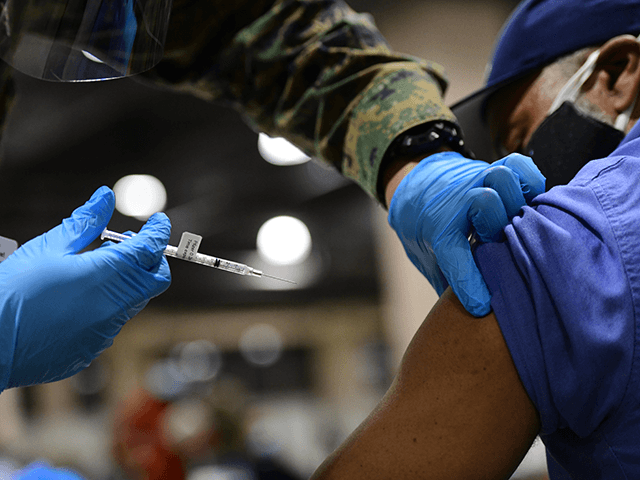The Department of Veterans Affairs (VA) used Critical Race Theory language in its plan for vaccine allocation, citing “social injustices” to justify prioritizing people based on the color of their skin, citing the “lifetime social disadvantages experienced by persons of color,” as revealed by documents obtained by Judicial Watch via an April 14, 2021, Freedom of Information Act (FOIA) request.
The VA documents revealed how the department views vaccine distribution, explaining how “fairness does not require treating everyone exactly alike.” The department used an elderly resident living in a Community Living Center (CLC) as a hypothetical example, explaining that he or she should get the vaccine before a young, healthy person.
“This does not mean that the elderly individual is considered more valuable, rather, he or she has greater need to be protected from the virus,” the VA wrote, asking to look at “fairness” in the context of giving people opportunity “based on need,” despite the fact that everyone is “equally valued.”
However, the following section, titled “Addressing health inequities,” shows the VA is prioritizing people based on the color of their skin as well.
“National U.S. data show that COVID-19 has disproportionately affected persons of color,” the document reads, attributing the claim to “social injustices that create a higher disease burden and shorter lifespan in this population.”
The report continued:
Geronimus (1992) attributed this partly to the concept of “weathering,” that lifelong exposure to the stresses of racial disparity and injustice manifests in greater physical and psychological disease burden and less ready access to quality health care and health-related resources. In addition, persons of color are more likely to work and live in settings with higher exposure to SARS-CoV-2. (Emphasis added)
The VA explained, “Merely being Black or Hispanic or Native American does not cause one to more easily contract SARS-CoV-2,” but that a “lifetime social disadvantages experienced by persons of color make them more likely to have health problems that predispose them to contract SARS-CoV-2 and more often suffer serious or fatal outcomes.”
“Thus, these individuals, along with others who are at risk for suffering serious or fatal illness due to the presence of comorbidities, will be prioritized for COVID-19 vaccine per the allocation plan as a consequence of risk factors,” the department determined.
What is more, the VA goes far beyond issues revolving around vaccine allocation, citing a “widespread consensus” that “more must be done to rectify health disparities upstream through improved access to quality education, preventive health care, economic and job opportunities, safe housing and healthy food, reduced exposure to crime and violence, and public safety.”
“Another way to address health disparities is to reach out effectively to communities of color and others who have been socially disadvantaged to engage them in the vaccination process,” the VA asserts, stressing that “active efforts must be made to address concerns about vaccine safety and fairness in the allocation process”:
Ensuring trust in vaccine allocation decisions requires using objective criteria to justify these decisions with a clear explanation of their ethical basis and applying criteria equally across settings. These ethical criteria are described above. The procedural principles undergirding VA’s COVID-19 vaccine allocation framework include fairness, transparency, and reliance on best available scientific evidence. This requires communication that is tailored to specific groups, consistent, respectful, and accurate to earn, secure, and maintain the trust of VA staff and Veterans under their care.
Tom Fitton, president of Judicial Watch, called for more transparency for the American people in the wake of these revealing documents, which he said are showing “that politics and a pernicious Critical Race Theory approach infects VA decision-making on the allocation of health resources to veterans.”

COMMENTS
Please let us know if you're having issues with commenting.